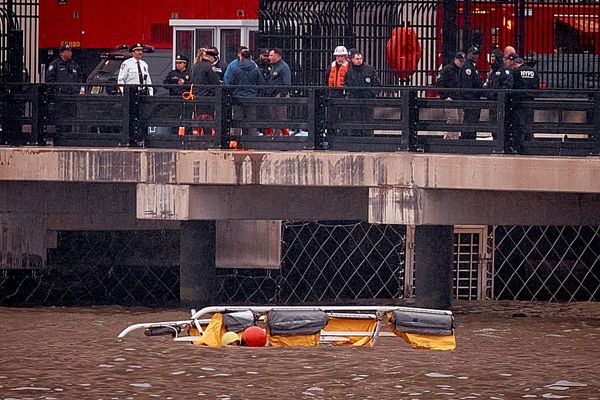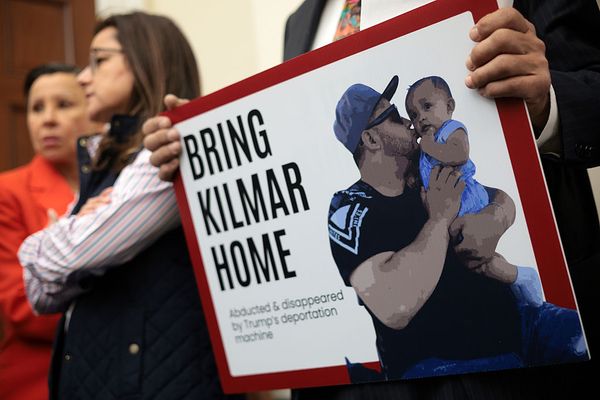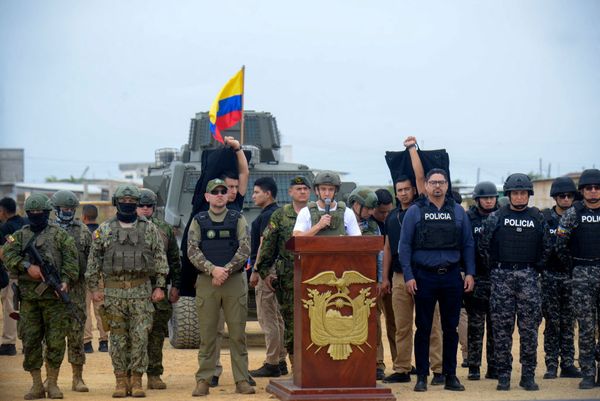
The pain and damage wreaked in the last 16 months will reverberate through families, communities and the Middle East for decades to come. On Thursday, the bodies of two young children and their mother, and that of an 83-year-old peace activist, were returned to Israel by Hamas. They were kidnapped in the 7 October 2023 raid in which the militants killed around 1,200 Israelis and others. Around 48,000 Palestinians, most of them civilians, have been killed in Gaza since Israel launched its war in response.
It was always feared that the ceasefire deal, which has brought desperately needed respite for Palestinians in Gaza and the return of Israeli and foreign hostages, would be fleeting. The six-week opening stage is due to expire on 1 March. The talks on the more complicated second stage have yet to begin, more than a fortnight after they were due.
There are two glimmers of hope. The first was the striking confidence of Donald Trump’s Middle East envoy, Steve Witkoff, in declaring last weekend that “phase two is absolutely going to begin”. The second is that Hamas, militarily battered and under pressure within Gaza and from Arab governments, has said that in the next phase it would be willing to release all remaining hostages at once, rather than in staggered groups. In exchange, it wants Israel’s complete and rapid military withdrawal from Gaza and the release of hundreds more Palestinians held by Israel. Benjamin Netanyahu has reportedly said that this phase would be conditional on the disarming of Hamas and the end of its presence in Gaza.
The Israeli prime minister does not want to cross Mr Trump. But it has never been in his interests to reach phase two, not least because of the threat that the extremist coalition member Bezalel Smotrich may walk out. His security chiefs long believed politics was the biggest obstruction to a deal. Now he has dismissed them from the negotiation team, replacing them with his well-connected confidant Ron Dermer, who could yet attempt to bypass Mr Witkoff and deal with Mr Trump directly.
At this late stage, the extension of phase one would be better than nothing. The agreement and implementation of phase two, inherently more difficult, would be a major step forward. But the immense question of phase three looms: what form reconstruction in Gaza might take. Mr Trump’s abhorrent announcement that Palestinians should make way for a US-owned “Riviera of the Middle East” – embraced by Mr Netanyahu – has precipitated a discussion that had been sidestepped lest it derail the deal, as well as due to its inherent complexity.
Ethnically cleansing Palestinians would require countries willing to take them. Though Egypt and Jordan rely heavily on US aid, their leaders cannot afford to comply. Arab countries will meet in Riyadh on Friday as they scramble for an alternative plan, discussing Cairo’s hastily drawn-up proposal under which the United Arab Emirates, Qatar and others would fund reconstruction, with Hamas formally excluded from governance and oversight of the work. Even if they can find a theoretically workable solution, Mr Trump would need to be flattered into agreement. In the meantime, with hostages still held, and with conditions in Gaza remaining so dire, the priority must be to maintain the ceasefire. Whether or not it can be the foundation of a long-term response to this crisis, it is still essential to save lives now.
Do you have an opinion on the issues raised in this article? If you would like to submit a response of up to 300 words by email to be considered for publication in our letters section, please click here.







